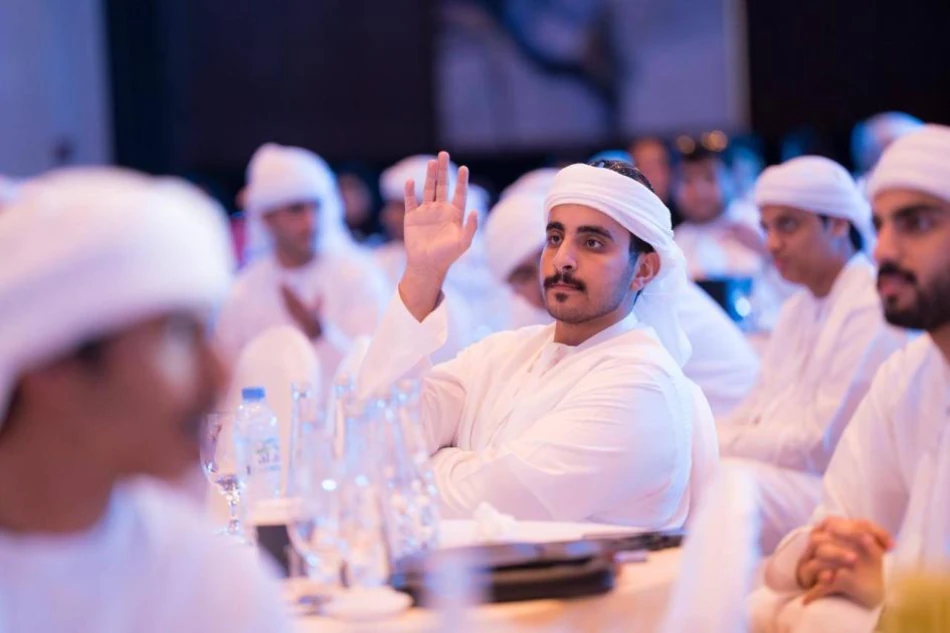
Empowering Domestic Scholars: National Responsibility in Overseas Study Programs
UAE Doubles Down on Global Education Investment as Students Become Cultural Ambassadors
The UAE's ambitious scholarship programs are reshaping how the nation develops its human capital, with hundreds of Emirati students heading abroad not just as learners, but as carefully prepared cultural ambassadors. Through the "Abu Dhabi Scholarships" and "Khotwa" initiatives, the Abu Dhabi Department of Education and Knowledge is investing heavily in fields critical to the nation's future—from artificial intelligence to biotechnology—while ensuring students maintain their national identity in increasingly globalized academic environments.
Strategic Fields Drive Scholarship Selections
The students' academic choices reflect the UAE's economic diversification strategy. Abdullah Al Manhali, studying artificial intelligence in Australia through the Khotwa program, exemplifies this alignment between personal ambition and national priorities. "Studying abroad is a responsibility, not an honor," he emphasized, highlighting the weight these students feel as representatives of their nation.
Similarly, Fatima Khalid's pursuit of technological engineering at Australia's top-ranked engineering university demonstrates the UAE's focus on building expertise in sectors that will define its post-oil economy. Her university ranks 19th globally and leads Australia in engineering—a strategic choice that mirrors Singapore's approach to sending students to world-class institutions in specific fields.
Healthcare and Legal Expertise in Focus
The emphasis on healthcare and legal studies among scholarship recipients signals the UAE's recognition of gaps in specialized services. Mariam Al Hammadi's psychology studies, motivated by her brother's misdiagnosis, reflect a broader push to develop mental health services—an area where the Gulf region has historically lagged behind Western standards.
Mariam Al Rashidi's law studies in Australia could prove particularly valuable as the UAE continues developing its legal framework for emerging sectors like fintech and digital assets, where international legal expertise becomes crucial for regulatory development.
Cultural Preparation: Beyond Academic Excellence
What sets the UAE's approach apart from traditional scholarship programs is its comprehensive pre-departure preparation. The "Scholarship Students Preparation Program" involves 25 strategic partners and addresses everything from financial literacy to drug awareness—practical concerns that many scholarship programs overlook.
This holistic preparation reflects lessons learned from other nations' experiences. Unlike earlier Gulf scholarship waves that sometimes resulted in cultural disconnection, the UAE's current approach actively works to maintain students' national identity while building global competencies.
Investment in Soft Power
The program's emphasis on cultural representation suggests the UAE views these students as long-term soft power assets. Sheikha Al Muhairi, studying nutrition and public health in Canada, attended workshops specifically focused on "maintaining the UAE's honorable image abroad"—a level of cultural preparation that indicates serious strategic thinking about international perception.
Economic Returns and Risk Management
From an investment perspective, the UAE's scholarship strategy appears designed for maximum return. By focusing on high-demand fields like biotechnology, AI, and advanced engineering, the programs target sectors where the UAE currently relies heavily on expatriate expertise.
The pre-departure preparation program, while costly, likely improves completion rates and ensures students return with both technical skills and cultural competencies. This contrasts with some scholarship programs that achieve high dropout rates or fail to retain graduates domestically.
Competitive Positioning
The UAE's approach puts it ahead of regional competitors in human capital development. While Saudi Arabia's scholarship programs focus primarily on volume, the UAE emphasizes quality preparation and strategic field selection. This mirrors successful models from countries like South Korea and Singapore, which used targeted overseas education to build specific industrial capabilities.
Long-term Vision Meets Immediate Needs
The 300 students currently being prepared represent more than individual opportunities—they're components in a larger strategy to reduce dependence on foreign expertise in critical sectors. As these graduates return over the next decade, they'll likely fill leadership positions in healthcare, technology, and legal services that currently rely heavily on expatriate professionals.
The program's success will ultimately be measured not just by graduation rates, but by how effectively these students translate their international experience into domestic innovation and leadership. Early indicators suggest the UAE's comprehensive approach—combining strategic field selection, world-class university placement, and intensive cultural preparation—positions it well to achieve both objectives.
Most Viewed News

 Omar Rahman
Omar Rahman






